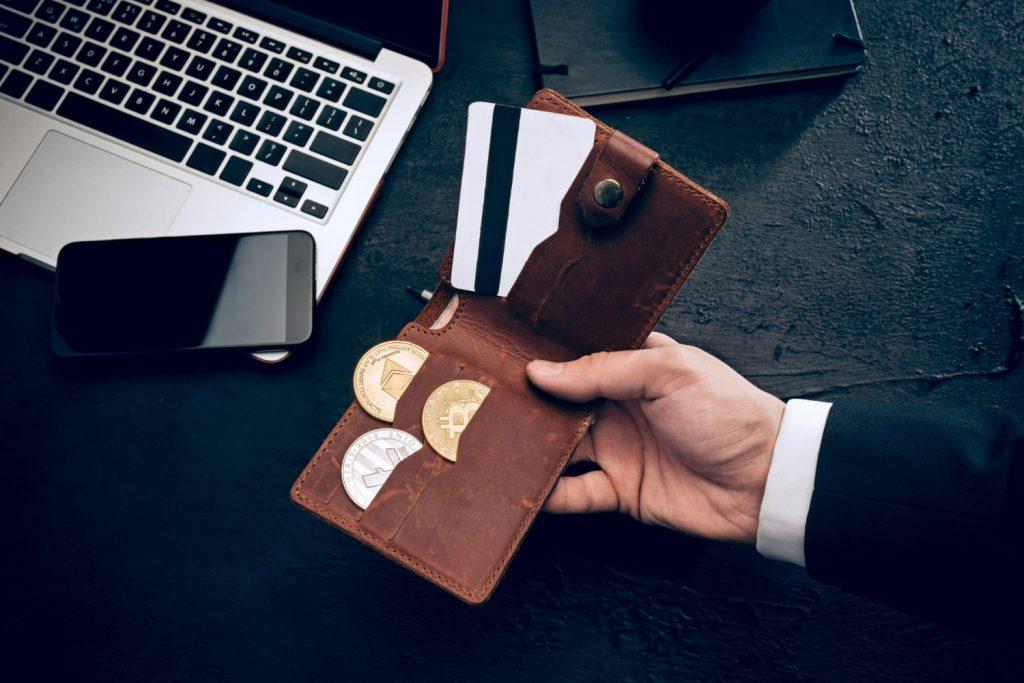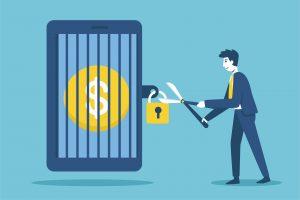As of February 2021, 68 million people use a free crypto wallet. CEO of Onramp Invest, Tyrone Ross, said crypto purists would never operate without a wallet. But what is the point of a crypto wallet?
The fundamental purpose of cryptocurrency wallets is to store and protect your crypto collection. While it does not offer complete safety, it is better than holding your coins on the exchange.
The most important point is that these crypto wallets store your private and public keys, recording your proof of ownership. Your crypto transactions and trades depend upon these keys.
Although you can store cryptocurrencies on the exchange, the risk of hacking and fraud remains. Kucoin, the 5th largest crypto exchange, witnessed a loss of $200 million due to a hack. It points to the need for a more secure option to store your cryptocurrency and their keys.
In terms of the user base, CoinBase is considered the most significant and best crypto wallet to date. Up until 2022, it hosts 92 million active users. The company went public on NASDAQ, adding to the cryptocurrency stock list. Let us understand more about crypto wallets.
What is a Crypto wallet?
Crypto wallets essentially serve the same purpose as the wallet in your pocket. Just as you store your currency in your leather wallet, these crypto wallets allow you to keep your virtual currency.
However, it’s not that simple. Instead of storing your digital currency, the wallets encrypt information about your respective private and public keys. The keys work together to make access to and transactions of your cryptocurrency comfortable.
Private and Public Keys
The essence of decentralization lies in the public and private keys. Both are required for you to receive and verify your cryptocurrency transactions without an intermediary.
Public keys are comparable to your email or bank account number. You share this cryptographic code with other people so that they can send cryptocurrencies to your account.
Public keys are paired with a private one for your personal use. The private key is what provides access to your account and proves your ownership over the cryptocurrency. It acts like the PIN or password to your crypto assets.
Do I Need a Cryptocurrency Wallet?
If you’re beginning your crypto journey, your first question is, ‘Do I need crypto wallet?’ The concept of a digital wallet is newly developed and challenging to trust.
While you do not need a crypto wallet necessarily, it is advisable to have one for security reasons. Professionals at CoinDesk suggest that storing your cryptocurrency in the exchanges is not recommended unless you are working with minimal amounts or are frequently trading.
These free crypto wallets aid transactions and record-keeping. The wallet gives you more power and ownership over your purchased assets. The decentralized nature ensures that you have sole control over your crypto wallet’s content and financial management.
How do Cryptocurrency Wallets Work?
Cryptocurrency wallets connect users to the blockchain network and, ultimately, to the crypto assets that they hold in there. The wallet stores the keys and cryptographic codes corresponding to your crypto assets on the blockchain, acting as a record for the ownership of your assets.
The underlying feature behind every wallet is:
- Sharing the Public keys, or crypto addresses, to receive cryptocurrencies.
- Using the Private key to access your cryptocurrency collection.
Consequently, crypto wallets do more than just store your coins. They are your pathway to buying, selling and managing your assets, including NFTs. Utsav Dar, the founder of Incub8 Finance, reports, “Some crypto wallets have additional features like crypto swaps, accessibility to dApps, or even staking NFTs.”
Does Your Crypto Grow in a Wallet?
Your crypto doesn’t grow in numbers in your wallet. It does still increase in value. More accurately, it reacts to market conditions and appreciates or depreciates accordingly.
The value of the digital assets held by you does not change any differently than it would outside it. As per Investopedia, the cryptocurrency held will still grow or reduce in value in your wallet. It just provides a platform to access and make transactions with your cryptocurrency.
There are several instances of people buying BTC at low levels and storing it in their wallets, only to sell them at higher rates to reap profits.
What are the Different Types of Crypto Wallets?
Crypto wallets are broadly classified into two categories: Hot and Cold.
Hot Wallets
Hot wallets are online and digital form wallets used to store, receive and send cryptocurrencies. Web extensions, desktop wallets and or mobile apps constitute hot wallets. Being online, they are susceptible to hackers and phishing attacks.
Over 7,000 Bitcoins worth $84 million got breached from the biggest Binance wallet on May 7th, 2019. This event points to offline wallets’ importance in storing your digital assets.
Cold Wallets
Cold wallets are offline and hardware wallets and physical devices that securely store your private and public keys without any direct internet connection. Hackers and data breaches do not affect cold wallets due to offline storage.
The best crypto cold wallets exist in USBs or an external Bluetooth device. They connect to the internet using a web-based interface or a separate software wallet. Your private and public keys get stored in your hardware drive. While hackers cannot harm it per se, cold wallets do run a risk of getting lost.
Custodial vs Non-Custodial
These wallets are further divided into two categories: Custodial and Non-Custodial Wallets.
In custodial wallets, the users do not have complete control over their assets. The wallet is under a third party that has control over the funds. While custodial wallets are popular due to their easier setups and lesser responsibilities, it requires users to trust the service provider.
Non-custodial wallets make users retain complete control over their funds in the wallet. They make a more secure platform as the private keys are not sabotaged and can be stored offline with the user. However, no system backup exists with non-custodial wallets, demanding a great deal of responsibility and ownership.
Which Cryptocurrency Wallet Works Best for Me?
The decision for your preferred cryptocurrency wallet solely depends on your goal with cryptocurrencies and tokens. You need to be sure of your investing purposes. Whether you plan daily trades or long-term investments, your wallet requirements will change accordingly.
To clearly understand what wallet perfectly suits your needs, ask yourself these questions:
- Do you want to save or spend your cryptocurrencies? Hot wallets for spending and cold wallets for saving.
- Are you looking for day-to-day trades? Online wallets will give you easier access.
- Valuing security over convenience? Hardware wallets provide a greater deal of safety.
These questions will help you make an informed decision about the best bitcoin wallet that would work best for you.
How Do I Get Started with Crypto Wallet?
After you’ve decided on the kind of crypto wallet that’s right for you, it’s time to set up your crypto wallet. Assuming it to be a hot wallet, you will need to either add in the browser extension or download the mobile or desktop app.
Popular wallets like MetaMask, having 30 million monthly AUs, are based on mobile applications that are the easiest to use. The hot wallets require you to set your crypto account using a strong password and a ‘seed phrase’ to fall back on if you forget your password.
Post setting up your wallet; you will need to transfer some funds in the form of cryptos into the wallet. You can do this by transferring pre-owned cryptos from exchanges like CoinBase. The wallet can then be used for transactions or swaps as and when needed.
How Much Do You Need To Start A Crypto Wallet?
Setting up your crypto wallet does require you to add funds into the account to get it running. However, it doesn’t cost you anything to set up the wallet. Hot wallets are free and need you to transfer your existing purchase into the wallet.
Hardware wallets like paper wallets or USB crypto wallets require you to spend around $100-$200 to set up entirely for use.
Not every hot crypto wallet requires you to transfer cryptocurrencies into it from the get-go. The fees and requirements are entirely dependent on the type of wallet you pick to go ahead with. However, on average, hot wallets are free to set up, while cold wallets cost you around $100.
Conclusion
Trusted crypto exchanges like Binance and CoinBase provide storage facilities for your cryptocurrencies. But they are more susceptible to hackers, as represented by the $84 million breach on Binance. So, if you’re wondering, ‘Do I need a crypto wallet with Binance?’, your decision can be based on this fact.
That said, even hot wallets are not free from hackers or data breaches. The popular Electrum wallet lost $4 million across the 4 months of December to March 2019.
Fortunately, with the advancing blockchain technology, hot wallets are getting more secure every day, with developers working on the wallets consistently, staying on top of threats. Your investment goals in the cryptocurrency world determine your need for a free crypto wallet.






